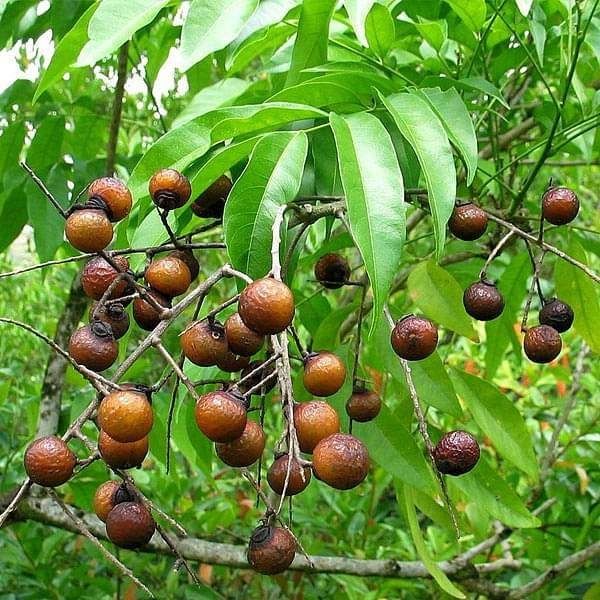Sapindus mukorossi, commonly known as soapnut or reetha, is a tree native to India. It produces fruit that contains saponins, natural compounds with detergent-like properties. Soapnuts have been traditionally used for their cleansing properties and are often used as a natural alternative to conventional laundry detergents and soaps.
The shells or husks of the soapnut fruit contain high levels of saponins, which act as a natural surfactant. When soaked or boiled in water, they release a soapy lather that can effectively clean clothes, dishes, and various surfaces. Soapnuts are commonly used as a natural laundry detergent and are also used for cleaning purposes in households.
Soapnuts are considered hypoallergenic and gentle on the skin. They do not contain harsh chemicals or synthetic additives, making them a suitable option for individuals with sensitive skin or allergies. Additionally, soapnuts are biodegradable and have a lower environmental impact compared to many conventional detergents.
Soapnut extracts or powders are also used in hair care products. They are believed to have mild cleansing properties and are used in shampoos, conditioners, and hair rinses. Soapnuts are often used to promote healthy hair, maintain scalp health, and address dandruff or other scalp conditions.
Soapnut powder can have insecticidal properties and are sometimes used as a natural pesticide. They can be applied to plants or used in pest control formulations to repel or control insects, mites, and other pests.
